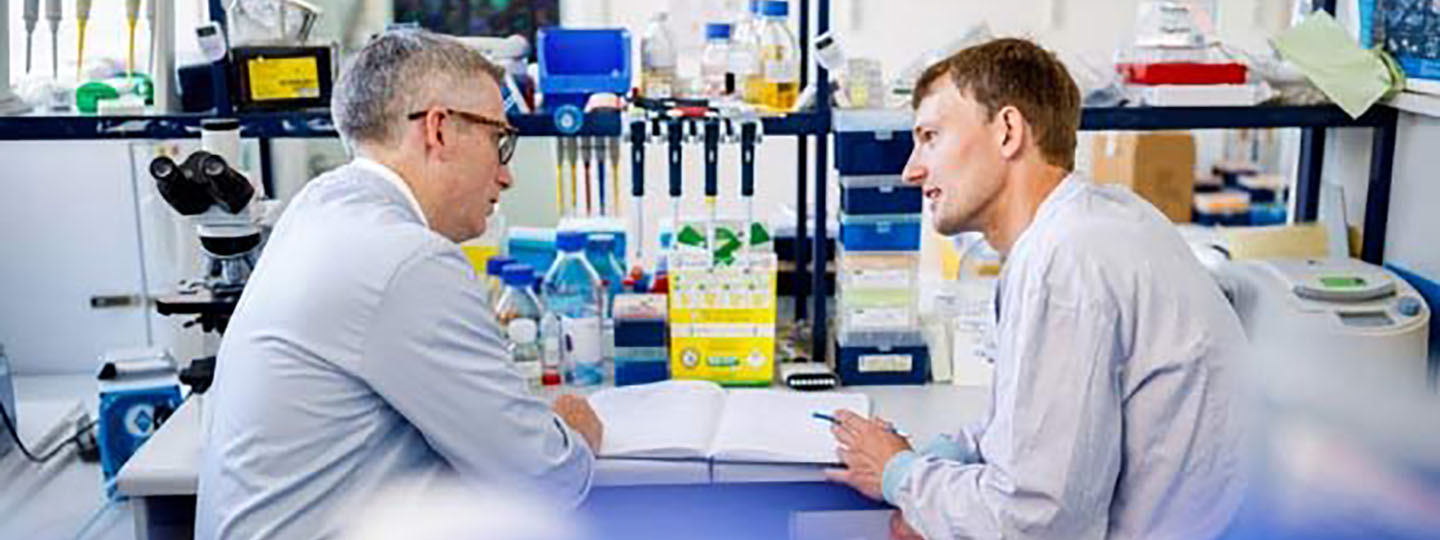New clinical studies to help diagnose and treat arthritis effectively
23 August 2024
We know we need more effective medicines and interventions for people with all types of arthritis and related conditions. We also know that it is crucial that people receive accurate diagnoses more quickly so they can start treatment sooner.
That's why we're excited to announce that we have funded two brand new clinical studies, investing £2,2M in projects that will help to improve the early diagnosis of osteoarthritis and to investigate new treatment options for people with juvenile dermatomyositis.
Read on to learn more about these projects!
What are clinical studies?
We recently showcased our new discovery research projects which aim to help us understand the basics of arthritis. These studies will lay the foundations for future improvements to the diagnosis and treatment of arthritis.
Clinical studies, on the other hand include those research projects which test new treatments and technologies in people. These research projects are vital as we look to transform research breakthroughs into new treatments and diagnostic tools to help people with arthritis.
Versus Arthritis' funded research has already made a huge impact on the lives of people with arthritis. For example, our research helped with the creation of the revolutionary anti-TNF drugs.
But we haven’t stopped there.
Interested in how we’re funding research to uncover the fundamentals of arthritis? Click here!
Using a new imaging technique to diagnose osteoarthritis earlier
Currently X-rays can be used to confirm whether someone has osteoarthritis. However, they won’t necessarily show any clear signs of the disease in its early stages.
This means that the diagnosis of osteoarthritis often occurs too late, when the disease is more difficult to manage. If we can spot the signs of osteoarthritis sooner, we can help people get access to treatments and interventions that can delay the onset of more severe symptoms.
Professor Cosimo De Bari and his team at the University of Aberdeen are using a new type of imaging technology to see if they can spot these early signs. This technology is similar to an MRI scan, but with lower magnetic fields that can change rapidly during the scan. This means that it can get a more detailed picture than through MRI.
The researchers will monitor people who could be at risk of developing osteoarthritis over a period of four years.
These participants will:
- Be aged 35-70.
- Have knee pain.
- Have no previous knee surgeries or known knee injuries.
- Show no signs of osteoarthritis on an X-ray.
These people might develop osteoarthritis which gives the researchers the chance to look for the early tell-tale signs of the disease.
The researchers will monitor these people with the new scans and various other tests, such as blood tests and x-rays. This will mean they can see who develops osteoarthritis, and if they can spot the early signs of the disease .
People in the study who have very quickly progressing osteoarthritis and those who have no changes in the damage to the joint will be invited to undergo a knee biopsy. After collecting a little bit of synovium, the lining that surrounds our joints, researchers will carry out tests on the tissue to understand how changes in the synovium might lead to joint damage.
This research will aim to help identify who should be on different treatments at different time points. Early detection of the osteoarthritis means people can get the right treatment, at the right time.
Testing the medicine baricitinib for children with juvenile dermatomyositis
Biologic medicine has been revolutionary in the treatment of arthritis. While anti-TNF, the drug that stops an inflammatory molecule called tumour necrosis factor (TNF), has been successful for many conditions, it is not as effective in others.
For example, for children with the disease juvenile dermatomyositis (JDM), treatment is restricted to steroids and methotrexate. These are not always effective.
JDM is a rare but serious inflammatory disease affecting a child’s muscles, blood vessels and organs. Better treatments are urgently needed.
But there is hope. At University College London and the Great Ormond Street Hospital, Professor Paul Brogan and his team are investigating a potential drug, baricitinib. It is anti-JAK, meaning that it works by blocking Janus Kinase enzymes which are active in inflammatory disease.
This clinical trial will see if baricitinib is an effective treatment for children with JDM. If successful, future research could make this medicine widely available. Children with JDM would have their quality of life returned if this disease is well controlled.
Support our research
We won’t stop supporting scientists across the UK who are working to end arthritis. Research projects like these aim to get us closer to real benefits for people with arthritis.
Your donations help us fund crucial research like this, aiming to effectively diagnose and treat arthritis.